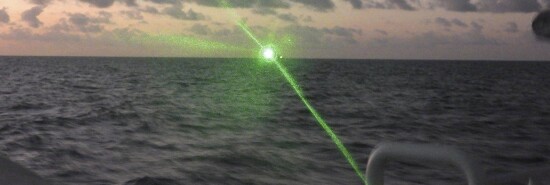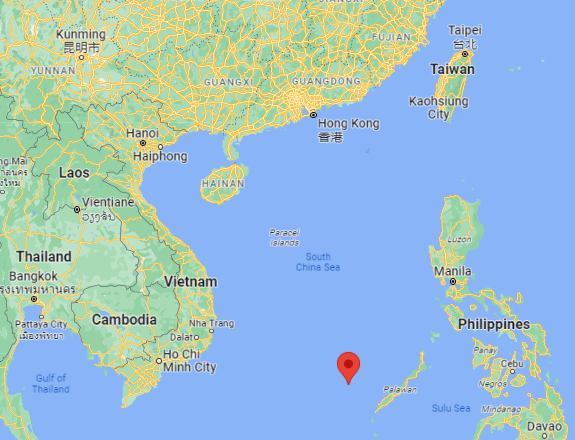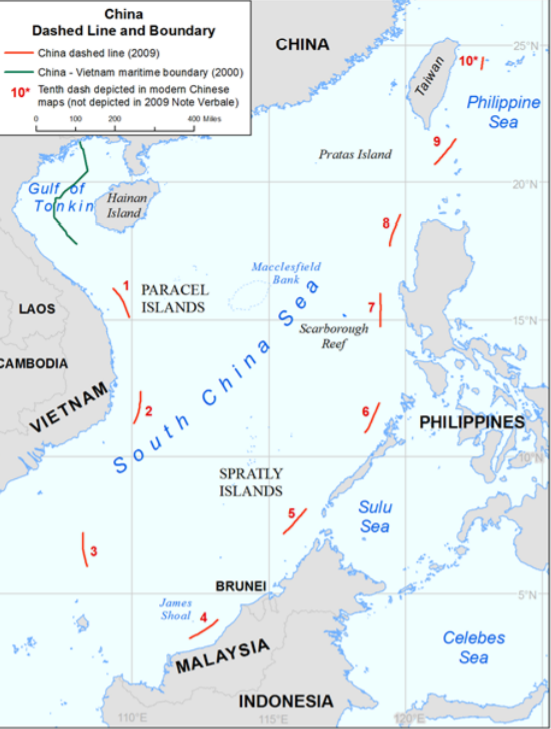
Why China’s dangerous Second Thomas Shoal escalation matters
Tom Rogan
Video Embed
On Saturday, a Chinese coast guard vessel fired its water cannon at a Philippine vessel as it attempted to resupply Marines. The Marines in question are aboard a deliberately grounded ship in the Second Thomas Shoal, serving to reinforce the Philippines‘s rights over those waters.
Those rights should be, and are for most nations, indisputable.
CHINA WARNS US OVER TAIWANESE PRESIDENTIAL CANDIDATE’S VISIT
As shown below, the Second Thomas Shoal is 710 miles south of China’s Hainan island but only 122 miles from the Philippines’s Palawan island. That puts the Shoal well within the Philippines’s exclusive economic zone, thus affording Manila sovereign rights over these waters and their fishing and energy reserves.

Blatantly ignoring international law, however, China absurdly claims the Second Thomas Shoal as its sovereign territory. Indeed, as in the map below, China claims that the near entirety of the South China Sea constitutes its sovereign territory.

But why should this matter to Americans?
There are two reasons.
First, because this latest incident evinces China’s growing aggression toward the Philippines. In April, a Chinese coast guard vessel threatened to ram a Philippines coast guard vessel operating in the same area. And while China is demanding its Marines abandon the grounded ship, the Philippines isn’t backing down.
Following Saturday’s incident, a military spokesman observed, “Who is the China Coast Guard to tell us what to do?” President Ferdinand “Bongbong” Marcos was equally defiant. “We continue to assert our sovereignty,” he said. “We continue to assert our territorial rights in the face of all of these challenges.” A Philippine National Security Council spokesman pledged Manila “will never abandon” the Shoal.
This rhetoric has deeply aggravated China, reflecting a major shift from the appeasement policy of former President Rodrigo Duterte. That takes us to the second point of note.
Because, to its credit, neither is the Biden administration equivocating. The State Department noted that Beijing “has no lawful claim to the maritime area around Second Thomas Shoal, which is located well within the Philippines’ exclusive economic zone.” Then came the key line: “The United States reaffirms an armed attack on Philippine public vessels, aircraft, and armed forces — including those of its Coast Guard in the South China Sea — would invoke U.S. mutual defense commitments under Article IV of the 1951 U.S. Philippines Mutual Defense Treaty.”
Put simply, this situation matters because the Philippines is a treaty ally of the U.S. If China escalates its attacks beyond water cannons, which it may well do, the U.S. military may quickly be engaged in combat with the People’s Liberation Army.
While many in Congress don’t seem to recognize this threat, the PLA certainly does. Hence why its espionage apparatus is running rampant in its attempts to infiltrate the U.S. Navy. Hence why the PLA is doing all it can to learn from the Russians how to sink U.S. submarines.
CLICK HERE TO READ MORE FROM THE WASHINGTON EXAMINER
What happens next?
Well, it’s critical that the international community continue to reinforce the Philippines’s rights. European Commission President Ursula von der Leyen last week set a strong example here. But it’s now crucial that other leaders such as French President Emmanuel Macron, who claims to prize Pacific stability, now follow suit. Xi Jinping must understand that any benefits from escalation will meet collective international reprisals. And thus that the costs of his aggression will far outweigh any benefits born of his deluded imperial grandeur.
